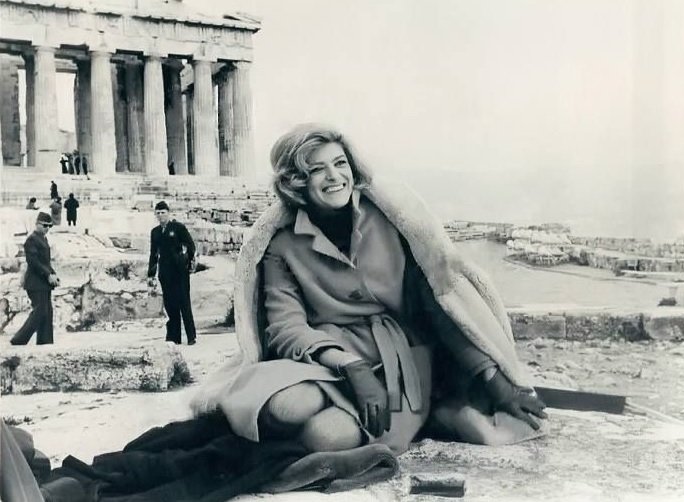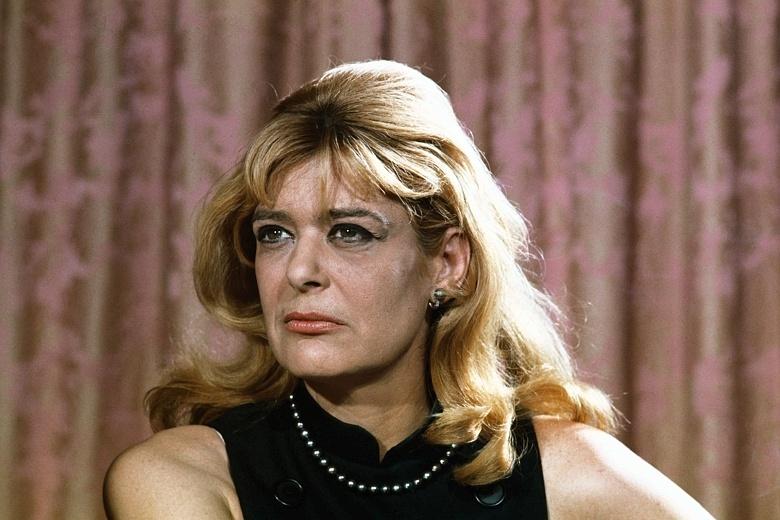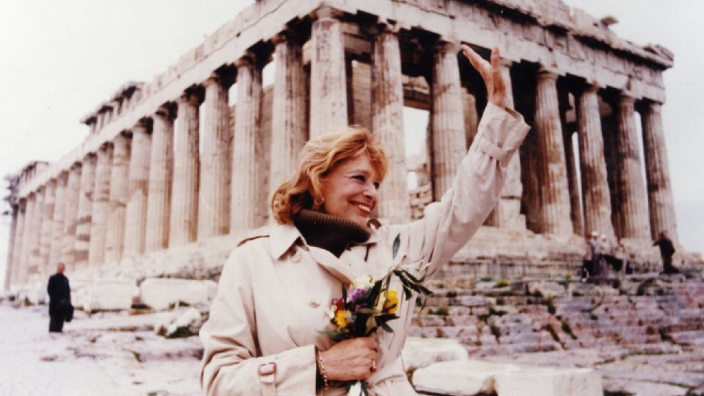On July 29, 1982, then-Minister of Culture in Greece, Melina Mercouri, addressed the World Conference on Cultural Policies organised by UNESCO in Mexico City.
At the conference, Mercouri seized the opportunity to address the issue of the repatriation of the Parthenon Marbles to a global audience and demanded they be returned to Greece.
In her speech in front of other Ministers of Culture who attended the conference, she urged for the support of the global community to Greek people’s claim. As she stated in her speech:
“It is now some six months since I dared make the suggestion that these marbles ought to be returned to Greece. Since then a small storm has been raging. But what I find most interesting is the fact that, following an interview with the BBC, I had hundreds of encouraging letters from individuals and organisations in Britain. I detect in these letters the English people’s love of justice and beauty,” Mercouri said.

READ MORE: Melina Mercouri: Greek actress and activist who embodied Hellenic spirit.
“We are not naive. And we well understand that the museums cannot be emptied. But I insist on reminding you that in the case of the Acropolis marbles we are not asking for the return of a painting or a statue. We are asking for the return of a portion of a unique monument, the privileged symbol of a whole culture.”
After this enthralling speech at the UNESCO conference, Mercouri immersed herself further in a battle for the repatriation of the Marbles and she wasn’t alone.
READ MORE: Geoffrey Robertson QC holds Australian launch for book on the return for the Parthenon Marbles.
Her vision received wide public acceptance in Greece by academics, middle and working class people, politicians, artists, business circles, as well from other countries.

In 1981, the year before Melina’s speech, the International Organising Committee – Australia – for the Restitution of the Parthenon Marbles, was established. The committee was the first in the world to campaign for the return of the Parthenon Marbles to Greece.
In 1983, the British Committee for the Reunification of the Parthenon Marbles was established. Shortly after this, and following correspondence between the Australian committee and Mercouri, she visited Australia. While in Australia, she asked the inaugural chair of the Australian Committee, Emanuel J Comino, to extend support to the newly formed British Committee.
READ MORE: It’s time to sue: David Hill, Chairman of ‘Australians for the Return of the Parthenon Sculptures’.
Following the continuously expanding influence of the campaign, on October 1984 the Greek government made its first claim for the return of the Marbles and soon received its rejection from the British side.
Since then, the issue of the reunification of the Parthenon Marbles has been in the political and cultural agenda of all consecutive Greek governments.
READ MORE: Boris Johnson rules out return of Parthenon marbles to Greece.
Source: Marblesofparthenon.

